100 Questions About Summer Camp
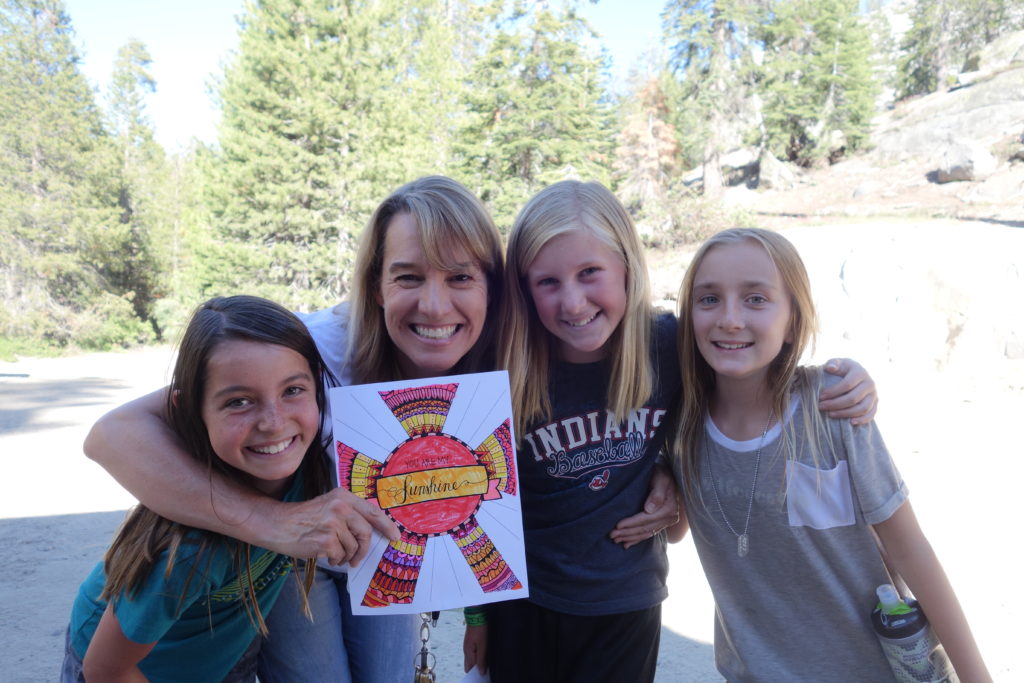
Over my three decades as a summer camp director, I’ve been asked thousands of questions about camp from parents, campers, and young adult counselors. Much of my research, writing, podcast topics, and speaking has emerged from these questions.
Do you have a question about summer camp?
Send an email message to my team.
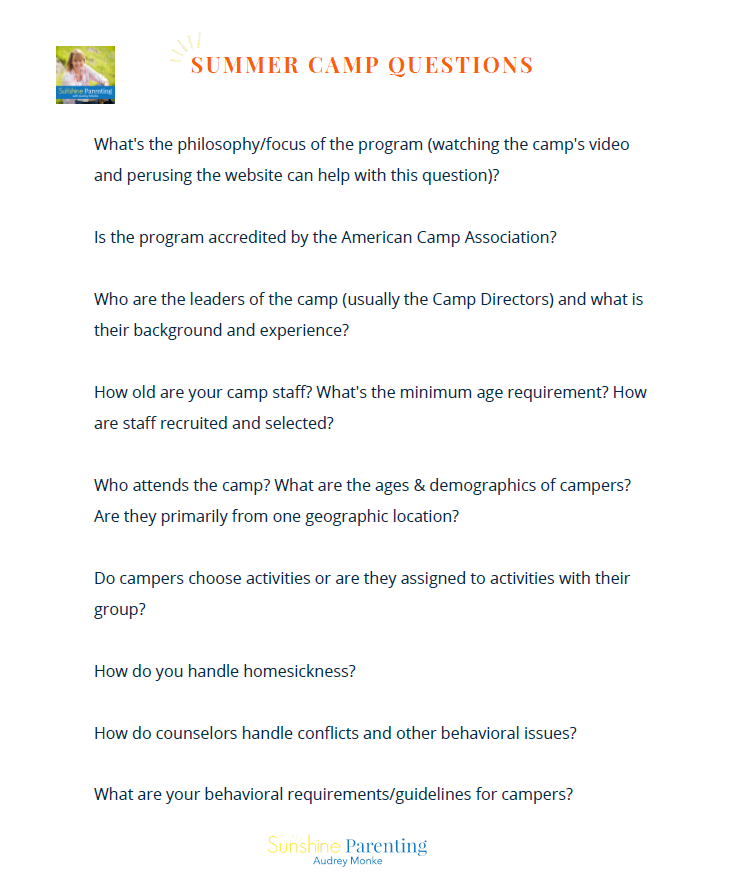
Questions About Summer Camp
Subscribe to my weekly emails, and I'll send you my key Questions About Summer Camp that you can use to vet your child's summer location.
Deciding on Camp
What’s the best age for overnight summer camp?
You probably want a number here, and if I have to pick, I’ll go with age nine. But my real answer is a bit more complex. When to start sending your child to sleep-away camp is a decision that depends on you, your parenting style, and your child’s temperament. Read more.
Is my child ready for camp?
Every child is different. But you as a parent must be ready to partner with the camp team, providing honest information about your child’s individual needs and being willing to come alongside us as we work to provide your child with the best experience possible. Watch this video for more information.
[cp_modal display=”inline” id=”cp_id_7e768″][/cp_modal]Should I make my kid go to camp?
Deciding to send your kid to camp for the first time can be scary, and – especially if you’re an anxious parent – it’s easy to come up with a never-ending list of why not to send your kid to camp. The key is to evaluate how both you and your child are feeling about camp: anxious or confident? Read more.
Am I (and my child) emotionally ready for camp?
How does your child adapt to new environments or experiences? How does your child cope with sadness, anger, or disappointment? These are a few of the questions that can help you evaluate the emotional readiness of you and your child. Read more.
How do I choose a camp?
There are resident camps, day camps, specialty camps, and more. Some camps last one week, others a month. To determine which camp is right for you, take some time to think through some of the questions in this article.
Where can I search for an American Camp Association (ACA) accredited Camp?
You can search through ACA accredited camps here. The detailed search engine will help you find camps that fit your criteria, whether you’re looking for a camp within a select location or if there are specific activities you’d like your kid to try.
Why should I select an ACA (American Camp Association) accredited camp?
ACA Accreditation means that your child’s camp cares enough to undergo a thorough peer review of its operation – from staff qualifications and training to emergency management. Camps and ACA form a partnership that promotes growth and fun in an environment committed to safety. Read more.
What are good questions to ask when selecting a sports camp?
Sometimes it’s hard to know the right questions to ask when selecting a camp, and when it comes to sports camps – which can become especially competitive – it’s important to ask the right questions to be sure your kid ends up in an environment in which they thrive. Listen to this podcast for more information.
How can I afford camp?
There are various scholarships available to help send kids from financially disadvantaged backgrounds to camp. Read more to learn about how to apply for scholarships and what the process looks like.
Is there a camp for my child with special needs?
The short answer: yes! You can find more resources about sending children with special needs to camp here.
Why should you feel okay about sending your child to camp?
Sometimes kids worry that they’ll miss out on what’s happening at home with family or friends during their time at camp. As kids become teenagers, they also may worry that a summer job or internship is a better choice. Read this story on why one camper chose to keep coming back to camp year after year, and why she believes camp has equipped her with the resilience and grit to succeed in college and beyond.
What are some good questions to ask when choosing a camp?
If you’re new to the camp world, you may not know what to ask when researching different programs. This simple list of questions can help guide you on your search.
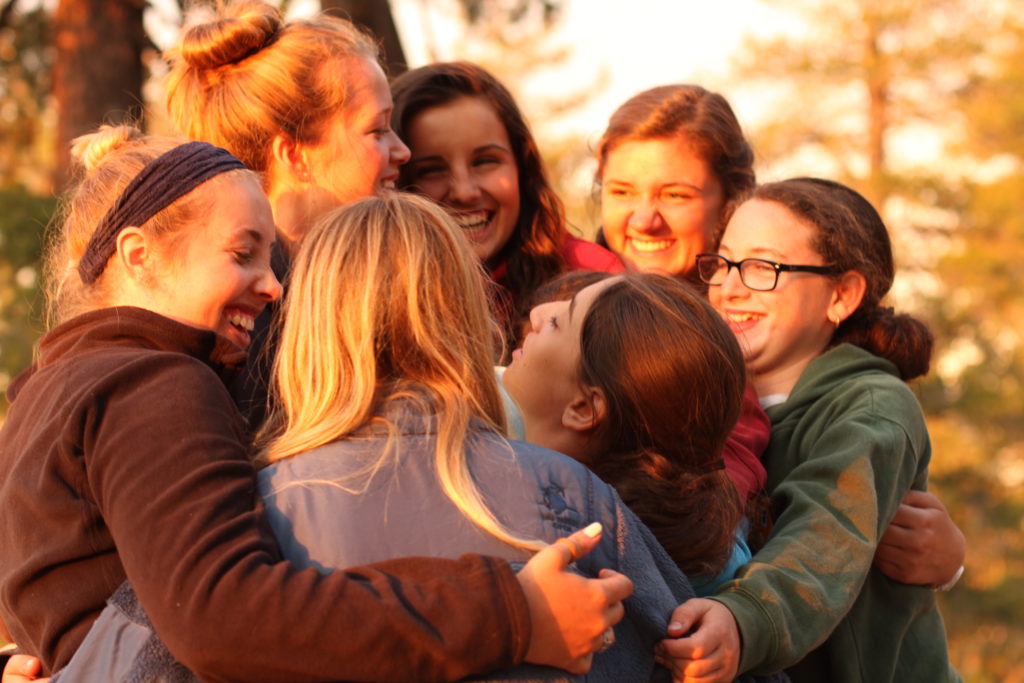 Benefits of Summer Camp Experiences
Benefits of Summer Camp Experiences
Why is summer camp possibly a secret to a longer life?
Research has proven that the quality of our social life and communities has a strong impact on our lifespan. Due to the intentional structures in place at camp – like unplugging from technology and following a schedule designed to build friendships – kids can experience close connections and community that they may not be getting at home. Read more.
Why do great parents choose to send kids to summer camp?
Camp creates opportunities for kids to try new activities and build new friendships, but they gain so much more than that. Read more for a list of some of the character traits kids build while at camp.
How does camp help parents raise adults?
In our current era where over-parenting is the norm, kids often don’t have the space to develop self-efficacy and independence before going off to college. In a 2013 study of 100,000 college students, 84.3% of them felt “overwhelmed,” 60.5% felt “very sad,” and 57% felt “very lonely” at some point in the previous year. Read more to find out how camp helps set our kids up to thrive once they leave home.
Why do kids flourish at camp?
Campers often describe camp as their “happy place” or “the best two weeks” of their year. What makes camp so special? Research by Martin Seligman has shown that there are measurable elements that lead to well-being, and they are all present at camp. Read more.
Why is summer camp a great place for kids to unplug?
I think we all intuitively know too much time spent glued to our smartphones, tablets, and computers is not good for us or our kids. After reading some of the current research on this topic, I’ve come up with five reasons why we should make unplugging a priority. Read more.
What do experienced campers say about their experiences?
Sometimes the best insights on camp come from kids themselves. Listen to this podcast in which five long-time campers reflect on how camp has impacted their lives.
Why is making friends one of the most important things that happens at summer camp?
Relationships and social connections are of crucial importance to our children’s (and our own!) life-long health and happiness. Children and adolescents require more than intellectual growth and physical health to become happy, successful adults. They also need to develop the social skills necessary for positive relationships with others. Read more.
How does summer camp empower kids through outdoor adventure?
So much of the environment that we live in – school, playground, etc. – people have tried to remove risk. We don’t want to avoid risk; we want to lean in where kids have natural consequences so that they can grow to become better decision-makers. Listen to this podcast for more.
How can summer camp help raise an independent, self-confident, resilient kid?
The way we model traits we want our children to exhibit has a powerful influence on them, and some traits (kindness, gratitude, and generosity) they learn first and foremost from parents. But there are other traits best learned through experiences outside the home and beyond the watchful (sometimes too watchful) eyes of parents. Read more here and here.
How can summer camp help get my kid off their screens?
Many of us find it difficult to drag ourselves away from our laptops and smartphones, and often our schedules and lifestyles don’t allow for adequate time to just be outside and enjoy our natural surroundings. I don’t think anyone would debate that we all need to unplug more, but it’s very difficult to actually get kids off their screens, especially now that many schools require devices for course work, and most kids have their own smartphone by middle school. Read more.
How can camp help with my parenting challenges?
Quality summer camp programs offer an experience that many parents have found to benefit their child’s development of important life skills. Independence, perseverance, and social skills are just a few of the skills that campers learn in the supportive community of camp. In partnership with parents, many camp programs offer positive, child-focused outdoor experiences that counteract some of the negative experiences children are facing in school, sports, social life, and cyber space. Read more.
Why is outdoor, child-directed free play important?
Outdoor, child-directed play involves collaboration and teamwork, creativity and imagination, critical thinking, and problem-solving. These skills are taught and reinforced at summer camp. Listen to this podcast for more.
Why do kids need to get outside?
In his 2005 book, Last Child in the Woods, Richard Louv coined the term “Nature Deficit Disorder” as a way to describe the “human costs of alienation from the natural world.” He recognized that “human beings, especially children, are spending less time outdoors resulting in a wide range of behavioral problems.” Read more.
How is summer camp creating change around the world?
There are now camps around the world that are teaching, empowering, and equipping youth to face the unique challenges in their communities. For example, Global Camps Africa provides week-long camps, day camps and continuing education programs that combine life skills training with recreational activities, changing the lives of South Africa’s most vulnerable youth. Listen to this podcast for more.
What impact does camp have on future adults?
ACA set out to explore the lasting impacts of camp and the ways camp experiences prepare young people for college, their careers, and their lives beyond camp. Read more.
Why choose summer camp over other summer experiences?
The camp experience enriches kids’ lives. Kids have the opportunity to develop social skills, build character and self-respect, and learn to live in a community. Read more about the benefits of camp.
How do summer camps focus on children’s strengths?
We are happier when we spend more time focusing and building upon our strengths than remediating our weaknesses. Recent research has proven that much of the angst and stress our youth feel can be alleviated if we shift from a deficit model, where our focus in on what is wrong with the child, to a strength-based focus, where we focus instead on what is going well for the child. Read more.
How does summer camp help kids prepare for college?
Experts say being away from home when you’re younger can help you ease into campus life. Overnight camp forces the type of constant interaction, negotiation, and direct communication that students will face in the communal, diverse environment of a residential college. Read more.
Why do camp experiences help with some mental health issues?
The Child Mind Institute, in its 2016 Children’s Mental Health Report, stated, “Mental health disorders are the most common health issues faced by our nation’s school aged children. One in five children suffers from a mental health or learning disorder, and 80 percent of chronic mental disorders begin in childhood.” Camp experiences build confidence, social skills, independence, and adventurousness, helping to combat the negative or stressful experiences our kids face. Read more.
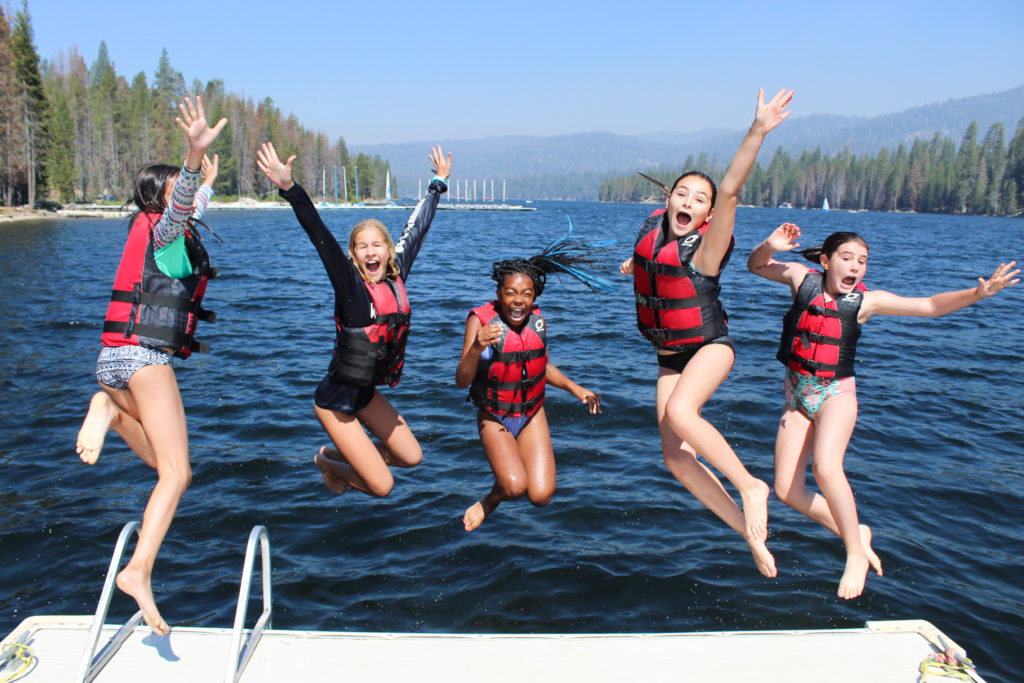 Teens and Summer Camp
Teens and Summer Camp
What are 10 benefits of summer camp for teens?
Adolescents’ three primary developmental tasks are forming an identity, gaining independence from parents, and making friends. At camp, they have the opportunity to grow in all these areas. Listen to this podcast for more.
Why do teens need summer camp more than ever?
Teens are the age group that fills most quickly at many camps because – perhaps more than at any other time during their youth – teens need the respite, recreation, and renewal that camp offers. Read more.
What Kids Learn at Camp
What are some surprising things kids learn at camp?
Some of our oldest campers shared that they learned how to be happy, “to just have fun and not worry so much.” Campers also said they learned how to be happy in their own skin, gaining confidence in their abilities, speaking up for things they believe in, and worrying less about what others think of them. Read more.
What social skills do kids learn at camp?
At camp, kids learn how to choose friends well, get to know things about their friends, understand their friends’ emotions, and so much more. Read more.
What are 10 friendship skills every kid needs – and can learn at camp?
One of the most important social skills is the ability to discern who might be a good friend. Kids need to find other kids who accept who they are, consider them an equal, and share some of the same interests. Read more.
How do kids learn to introduce themselves at camp?
Introducing yourself (Can you approach people on your own and meet them?) and introducing others (Can you help people meet one another?) are very basic and useful social skills, especially at summer camp, where kids are meeting lots of new people. There are seven steps that we use at camp to coach kids to introduce themselves and others. Read more.
What do kids learn about friendship at camp?
It is the quality of kids’ relationships that will best predict their future health and happiness. Children and teen’s friendships are where they practice the relational skills they will use throughout their lives, and making friends has always been one of camp’s most important goals. Read more.
What are friendship concepts girls learn at camp?
While many concepts I write about friendship apply to both boys and girls, there are some that seem to loom more largely in female friendships. Some of our most painful moments as parents will be when our daughter faces the downs in her female friendships. While it can be uncomfortable and sometimes heart-breaking to help our daughters navigate the challenges of their childhood friendships, rest assured that they are learning concepts and skills at camp that will help them develop and maintain social connections throughout their lives. Read more.
What do kids learn about resolving conflicts at camp?
Over the last few decades, I’ve noticed that kids have become less and less adept at solving their own problems and conflicts. They are quick to involve adults and call other kids names. All too often, we parents tend to rescue our kids from conflict; at camp, kids have a great opportunity to learn to solve such challenges on their own. Read more.
What communication skills do kids learn at camp?
Social skills – such as questioning, sharing, and extending invitations – are part of what we model and teach at camp, and our counselors know that they are “Social Skills Coaches” for their campers. Read more.
How do kids learn to calm down at camp?
The inability to calm down, self-regulate, and manage anger can have lasting negative effects, the most important of which can be an adulthood that lacks meaningful, sustained relationships. I’ve come up with 10 ways we can teach kids to calm down. Read more.
Why are kids happier at camp?
From observation, anyone can see that kids and the counselors who work with them appear happy at camp. They smile a lot. They look relaxed. There’s a lot of laughter. Read more to find out why.
What character traits do kids develop at camp?
Camp experiences allow children to develop their independence, self-confidence, and grit. Read more.
How does camp grow kids’ grit?
Campers learn to do more things for themselves when Mom or Dad isn’t around to clean up, make decisions, solve problems, intervene with social challenges, and remind kids about appropriate outerwear for a cold evening. With counselors alongside for support, camp is a great place for kids to develop independence and self-resilience, which in turn increases their confidence. Read more.
How does camp make kids resilient?
Summer camps are places where children get the experiences they need to bolster their range of coping strategies. There are simple challenges of learning how to build a fire and going on a hike, but also much more complex challenges of getting along with a new group of peers and learning how to ask for help from others. Read more.
Why is it great for kids to learn to pee in the woods?
While having the opportunity to watch campers construct fishing poles out of sticks and lanyard string and spend a night under the stars on a backpacking trip, I had a revelation: Kids rarely get a chance to play like this anymore. But when given the opportunity, they love it! Read more.
How does camp help kids set goals and grow?
At our opening campfires at camp, counselors ask kids to share something they want to accomplish at camp. We encourage kids to think of something that is outside their comfort zone and a little bit challenging because those goals are the ones that lead to the greatest feelings of pride and accomplishment. Read more.
Why is it good to try things you think you won’t like?
Overcoming fears and challenging oneself to attempt something that seems impossible can lead to great feelings of accomplishment and improved confidence. For the camper with a fear of heights, climbing half-way up the ladder on the high ropes course will be celebrated as a huge accomplishment and one that can make him/her proud. Read more.
How do kids learn to make real social connections at camp?
Close relationships, more than money or fame, are what keep people happy throughout their lives. I’ve compiled a list of some of my favorite resources about ways we foster close connections at camp. Read more here and here.
Preparing for Camp
How do you prepare for an overnight summer camp?
There are a number of ways you and your child can better prepare for camp, including filling out needed forms, encouraging your child to reach out to camp staff, and familiarizing yourself with your camp’s online services. Read more.
What are some essential packing tips for summer camp?
I’ve seen many kids arrive with too much stuff. Others don’t know what their own towel looks like or struggle to find something they need (like their bathing suit). Read this article about 5 essential camp packing tips that will make the packing process easier.
What should I do in the month before my child leaves for camp?
In addition to being a camp director, I’m also a camp parent, so I am well aware of that “where did I put that camp handbook?” feeling. It’s easy to wait a tad too long on a few items and then feel rushed right before camp. Read more about things you can do ahead of time to make the process less rushed.
How can I survive my child’s first stay at overnight camp?
I’ve discovered that camp experiences – especially first ones – are harder on parents than they are on campers. While the camper is engaged in fun, new activities and busy making friends, the parent is home feeling empty because their child is not with them. The quiet in the house and the daily tasks that no longer need to be done can create a strange void. Here’s my advice to you: Step confidently into that void, find other areas of focus, and get over your kidsickness! Read more.
What are some practical steps I can take to prepare my child for sleepaway camp?
Part of your child’s success at camp will depend on the preparations made before she ever leaves home. Whether it’s working through pre-departure jitters or knowing what to pack, following a few simple guidelines will ensure that your youngster starts her experience on the right foot. Read more.
 While your kid’s at camp…
While your kid’s at camp…
What are some fun ideas for letters to send to my camper?
Because we’re not in the habit of writing letters to our kids much these days – with brief texts being the primary form of written communication between us – it can be challenging to come up with what to write. Read more for creative ideas to keep letters fun and entertaining for your camper.
Why shouldn’t I worry while my kid is at camp?
If you are new to sending your kids to summer camp, let me reassure you that while they are away, you can relax your worrying muscles. By choosing an accredited program, you can be assured that the camp meets industry standards. Read more.
How can I keep from going crazy over photos being posted from camp?
The one photographer we used to have has morphed into a team of eight who require an entire office, a fleet of computers, and a supervisor to keep them scheduled and on track. But no matter how many photos we shoot or how much time we spend sorting, editing, labeling, and tracking how many pictures we’ve taken of your camper and their cabin group, you will never see enough photos of your child. Read more.
How will my child communicate with me?
Most of the time kids don’t have the opportunity to write letters like we did in the pre-computer, pre-email, pre-social networking, pre-cell phone era. But at camp, they do get to send and receive letters. Read more.
Why is it good for my child to try new activities at camp?
If a child doesn’t want to do an activity because of a previous negative experience, trying it at camp could lead to either a changed mind or, at the very least, a not-as-negative experience to remember. If a camper doesn’t want to do an activity because of fear, then trying the activity could be the most life-changing event that occurs for that camper during their camp stay. Read more.
How can I rediscover my authentic self?
Many of us, myself included, stopped doing some (or all) of the things that brought us into that state of flow that is so vital to well-being. As adults, we get caught up in the busy-ness and distraction of life and find we don’t have time for those seemingly frivolous things we used to enjoy. Thinking back to what we loved as young teenagers might just help us rediscover who we are. Read more.
How can I relax and enjoy life while my kid’s away?
I love this quote by Robert Brault: “Enjoy the little things. For one day you may look back and realize they were the big things.” We often complicate life when we think it’s the weekend or vacation or a decorated house or a super successful business that’s going to bring us happiness and fulfillment. Instead, what we need to remember is that what we’ll wish for most at the end of our days is a cup of coffee with our spouse on an ordinary, weekday morning and to spend time with the people we love. Read more.
Homesick Campers
How can I handle my camper’s homesickness?
You can work to prevent homesickness before camp even starts, but there are also some helpful things to keep in mind when handling your child’s homesickness once they’re at camp. Listen to this podcast for more.
Why do kids need to get uncomfortable?
As parents, we spend a lot of time making our kids comfortable. At times, I’ve felt like it’s my duty to alleviate any discomfort my child is feeling. However, no matter where our kid’s (or our own) comfort zones are, it’s important to explore the concept of being uncomfortable and, as a parent, learn to tolerate that discomfort when our kids are feeling anxious, nervous, or afraid. Read more here and here.
What are some good coping methods for homesickness?
Homesickness is an emotion that most campers feel to some degree at camp. Fortunately, in most cases, the fun and excitement of camp far outweigh any sad feelings. Read more for recommendations on how to communicate with your child before camp to prepare them well for a successful camp experience.
How can my kid be homesick AND happy?
It is possible! Listen to this podcast for insights from Homesick and Happy author Michael Thompson, Ph.D.
What messages can I tell my homesick camper?
Homesickness is a normal feeling and nothing to be ashamed or scared of. We need to openly tell kids that their feelings are okay so that they feel comfortable talking about missing home. Read more.
How can I deal with my own “kidsickness” while my kid’s at camp?
“Kidsickness” refers to the emotions some parents feel when they experience their first long separation from their child, which often is a stay at a traditional summer camp. Some parents adjust easily to having their child away, while others struggle with sadness and anxiety while their child is at camp. Read more.
Anxious Campers
Why does my camper not want to go back to camp?
Let’s call it Secondary Anticipatory Homesickness, where a camper facing a second year of camp keenly remembers and anticipates some psychic pain but is not equally in touch with the pleasures of camp. A parent has to acknowledge that it took courage to go off the first year and will take courage again. Read more.
What messages can I tell my anxious camper?
Let them know that missing home is okay. “You may feel homesick, and that’s okay. A lot of kids feel that way. That just means that you love us and you love home.” Read more.
After Camp
How do I help my camper get over “campsickness” when they return home?
The end of camp, and being apart from a group the camper has grown close to, can lead to a time of grief similar to other changes and losses people experience in life. During the transition home, let your camper rest, and encourage your camper to talk about camp and share stories. Read more.
How can I better understand what my child experienced at summer camp?
Unplug! Turn off your phone for an hour, or the evening, or if you’re really brave, the whole day. Use the time to give your family and friends your full attention. Read more.
How can I help my kid process summer camp (and other experiences)?
To help kids process their experiences, plan time for them to rest and process, be willing to listen to their stories, and look through photos together. Listen to this podcast for more ideas.
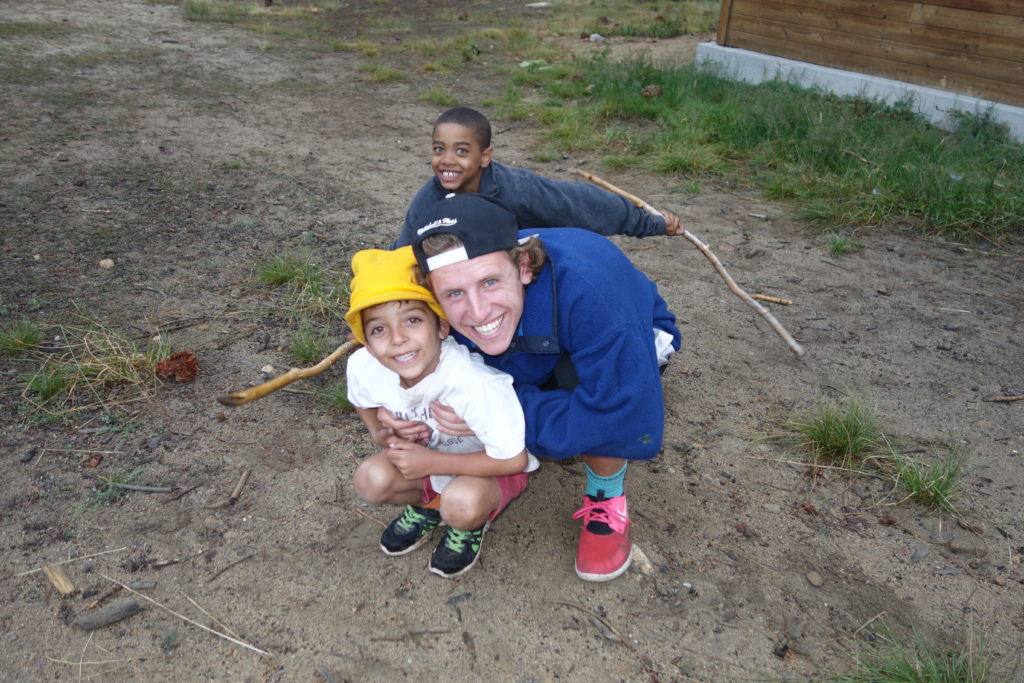
Being a Camp Counselor
Why is being a camp counselor the best summer job for college students?
The leadership, communication, and interpersonal skills counselors develop, not to mention the close, life-long friendships they form, are unmatched in any other summer internship or job. Read more here and here.
Why is being a camp counselor the greatest internship?
It would be easy to say that camp counseling is a good internship for people who want to work with children for their career, but the work experience camp counselors gain at camp translates to strong, employable skills that any company would be excited to see in their applicants. Read more.
What does parenting expert Wendy Mogel have to say about being a camp counselor?
We are hardwired to help and contribute, and we are killing in young people the impulse to help, instead teaching them to say, “Help me!” Within educated ask, you can give people the opportunity to exercise their instinct to help. Watch this video for more.
How can you be an outstanding camp counselor?
You can be one of the best, most memorable counselors your camp has ever seen. But this job is going to be a lot harder than you thought. So how can you still do a great job despite the challenges you’re going to face? Read more.
Internship, Test Prep, or Camp?
While parents and, in some cases, professional consultants guide young people in the sifting and sorting of options, many have their eyes firmly focused on preventing summer learning loss and enhancing skills that one day will infuse the employability of college graduates. Experiential learning in summer camp environments can dramatically improve individual learning and personal growth. Read more.
What are 10 benefits of being a camp counselor?
If you went to camp as a child, you probably remember having some amazing camp counselors. Being a camp counselor means that children (no matter how big or small) will look up to you. And hopefully, you will leave an impression on them for years to come. Read more.
Bringing Camp Home
What are some parenting tips from camp counselors?
Not every parent has had the benefit of camp counselor training. In fact, most parents have had no training at all! So the best we can do is offer a few tried and true tips from a few outstanding folks who were. Read more.
What are some questions I can ask to connect with my kid?
If you were to ask me the most important thing parents can provide their children, camp counselors can provide campers, and teachers can provide students, I can sum it up with one word: Connection. And the way to connect is through asking questions and listening. Read more.
How can I help my kid make friends?
One of the most basic and often overlooked social skills our kids need to learn in order to be approachable and available to make friends is to greet others appropriately. By starting to teach your kid simple steps, like smiling and making eye contact, you can help your child begin to foster closer friendships. Read more.
How can I be more positive with my kid?
Often, parents and teachers spend a lot of time focused on what they don’t want their children to be doing, instead of on what they do want them to be doing. At camp, we train our counselors in positive behavior management techniques. Read more.
How can I focus on connection before correction?
I’m convinced that developing positive, close relationships with our campers serves as the buffer against negative behavior and puts counselors in a better position to correct campers when they get off track. Without a positive, bonded relationship, a misbehaving camper will most likely not respond to correction. Read more.
How can I give my kid my full attention?
During most of our day-to-day interactions, one or both of us is not paying attention. Sometimes one of our kids will ask us a question and then walk out of the room before we’ve finished giving them an answer. For myself, I often feel this vague underlying anxiety that I have too much information to process and too many virtual communications to respond to. Read more.
How can camp help me “park” my helicopter?
As parents of this generation, we’ve been told that great parenting means being super involved with our children and always being in constant communication with them. While there are many benefits to this parenting style, the downside to our “helicopter” parenting is that it makes it difficult for our children to develop their independence, problem-solving, and decision-making skills. Read more.
Why can’t school be more like summer camp?
My dream is for my kids to attend a school they love as much as they love camp. But for that to happen, schools need to have a different culture and focus. Read more.
How can I make family dinner more like a campfire?
One activity we do at campfires at camp has been helpful in our family at getting our kids to communicate about both positive and negative events in their lives. For children who don’t normally share their struggles and keep them bottled up, it helps them open up. And for those who don’t naturally focus on the good things, it helps guide them to see the positive in their day. Read more.
What is Camp Kindness Day (#CampKindnessDay)?
Camp is a place where we can be very positive and very intentional about teaching kindness and why it matters. Showing appreciation for other people, and helping them feel valued and part of the community – that’s kindness. Listen to this podcast for more.
How can camp help with my child’s transition back to school?
There are so many reasons parents send their kids to a camp: to mature, meet new friends, have fun, try new activities, be in nature, and even just to get some time out of the house. While some families spend considerable time packing and preparing to send their kids off to camp, it would be wise for them to spend a bit more time learning about and building upon their experiences as they transition back into school. Read more.
How can I give my child the magic of summer camp?
Summer is a great time for reconnecting with your child, for truly listening to him or her – for deep true bonding with this person you are bringing up. Listen to this podcast to learn about the three most important things you can do to capture the magic of summer camp.
How can I teach my kid to approach life with wonder and joy, learn leadership skills, enjoy the outdoors, and learn appropriate tech use habits?
Tom Holland, a camp director and parent of four, has many excellent ideas for parents to teach kids to approach life with wonder and joy, learn leadership skills, enjoy the outdoors, and learn appropriate tech use habits. Listen to this podcast for more.
How can I use a growth mindset with my kids?
We often get fixated on our children’s achievements, when it is actually more important to show that we care more about their character. Out on the soccer field, do we care more about our kid winning or our child’s sportsmanship? Listen to this podcast for more.
How can I raise resilient, independent kids?
Sara Kuljis, 20-year veteran camp director and parenting trainer, has great insights and ideas about parenting and counseling kids. She shares three great questions to ask kids after a challenging or new experience to help them build resilience and independence. Listen to this podcast for more.
How can I teach my kid kindness?
Teaching kids to practice kindness helps them become happier people! Children are not born knowing how to be kind. They learn it from watching their parents, peers, and mentors. Read more.
How can I focus on my kids’ strengths?
Naming our kids’ character strengths can be powerful. By helping kids identify their natural talents and strengths, we can guide them into finding how their strengths can meet the needs around them. Listen to this podcast for more.
How do camp counselors get close to campers in such a short time?
Each day at camp, counselors ask campers specific, open-ended questions to elicit how campers are feeling. As a simple way to deepen your connection with your kids, and know how you can best support them, try having at least one daily one-on-one chat with each of them, modeled after what camp counselors do. Read more.
How do camp counselors help kids connect with each other?
I’m amazed at how the majority of the time, the teacher, coach, or leader just jumps straight into the content. By skipping over the connection piece, the kids are left, most likely, feeling more concerned about who their friends are going to be than what’s going on in the class, team, or club. Read more.
How can I give my kid more “WOW”s?
Would you consider taking a few moments – less than one minute – to say or write something positive to your kid? A genuine, meaningful compliment can stay with a person forever. Read more.
How can I raise a more grateful kid?
Creating a grateful family culture is a challenge in our entitled, indulgent age. Yet much research has confirmed what we intuitively know – practicing gratitude and being grateful are keys to a happier life. Read more for five family gratitude practices you can try!
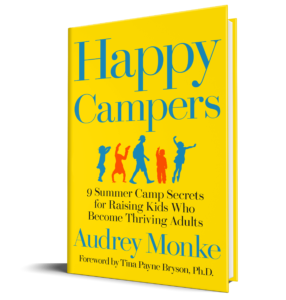 Want more ideas for bringing the magic of camp home?
Want more ideas for bringing the magic of camp home?
Get a copy of my book! Happy Campers: 9 Summer Camp Secrets for Raising Kids Who Become Thriving Adults!
